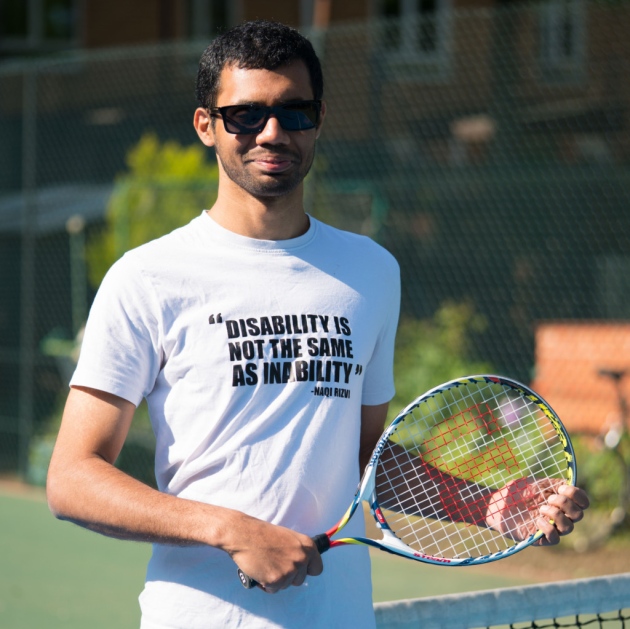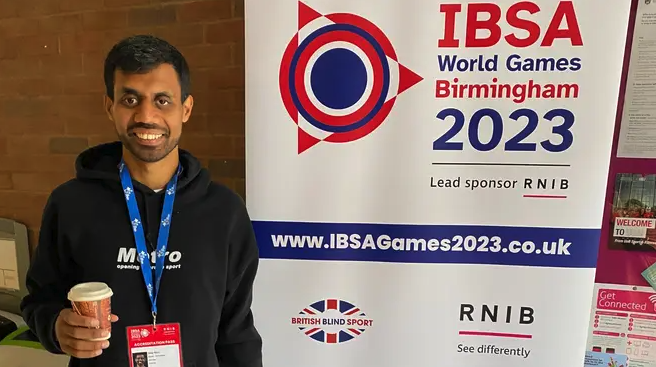It's official! The world number one at blind tennis lives right here
Tuesday, 31st October 2023 — By Anna Lamche

Naqi Rizvi won the crown at championships in Poland
BLIND tennis players face bigger challenges off the court than on it, according to a star player from a Belsize Park club – now ranked officially as the world’s best.
Naqi Rizvi, from Fitzjohn’s Avenue near Finchley Road, was recently crowned the number one blind tennis player in the world after his triumph at the International Blind Sports Association’s World Championship in Krakow, Poland.
Mr Rizvi, who practises at the Globe Lawn Tennis Club in Belsize Park, competes in the “totally blind category” of the sport. The player lost his sight at the age of seven, after being diagnosed with glaucoma as a child.
“I mainly grew up in South Asia. My dad was always very keen that I stayed physically active, and he loved his sport as well, so he tried to inculcate some of that into me,” he said.
“The only thing I’d really do is play cricket, because it was much easier to find a sound ball, so I started off playing cricket with some of my cousins and my dad.”
He said: “Generally visually impaired [VI] tennis is played with a sound ball. It’s based largely on hearing the ball rather than seeing it.”
Players play on a smaller court marked out with tactile strips. You get three bounces before you have to return it. The first bounce is for you to know where the ball landed, the second and the third is to get to the ball and then get it back.
On the court, Mr Rizvi said one of the hardest things has been learning technique – and keeping a cool head under pressure.
“I was not just rubbish physically but actually psychologically, I used to collapse under pressure. I never won any tie-breaks,” he added. His game has improved hugely since he first took up tennis in 2016 – but the challenges are much greater off the court, and often begin with having somewhere to train in the first place.
He added: “Clubs aren’t thinking – they don’t have the awareness. They want to make everything perfect, and that’s the worst thing you can do. Start with at least something and incrementally build it.”

Naqi Rizvi
The Globe has made adaptations to their courts that allow people with visual impairments to play the sport.
“The equipment we use for VI tennis, it’s not going to break the bank,” said Mr Rizvi.
“There needs to be more willingness, more outreach programmes, more volunteers, more support.”
His tennis career is “self-funded”, so he works a full-time job in financial services to cover his costs.
“If you are in the top 100 in the world in mainstream tennis, you will generally have sponsors, whereas even if you’re top in the world [in VI tennis], you still don’t get any financial support, there’s no prize money,” he said.
“So even though the mainstream sport is expensive, if you are very good and if you’re at the top of the game, you will get funded. “Visually impaired athletes have done so well: before you even worry about the sport, there’s a lot of other obstacles you have to overcome, and that should be recognised.”
